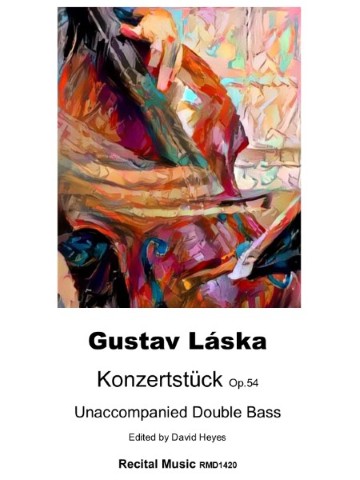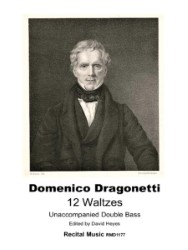Konzertstuck Op.54
(Concert-Piece)

Composer: Laska, Gustav
Instrumentation: Double Bass Solo
Editor: David Heyes
Publisher Recital Music
One rare work for unaccompanied double bass which has fallen off the radar is the Konzertstuck Op.54 by Czech bassist-composer Gustav Laska. Probably composed in…
Page ? of ?
Digital Download – PDF
Shipping costs: No shipping
R.R.P £7.50
Our Price: £6.38




